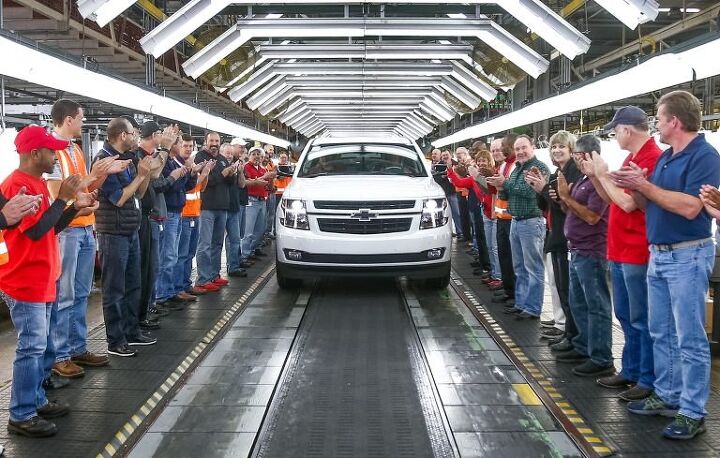#AssociationOfGlobalAutomakers
Auto Industry 'Unites' Against U.S. Import Tariffs
Of all the things that automakers hate, losing money has to hold a permanent place at the top of the list. If you aren’t making money, you can’t keep building cars — and if you aren’t building cars then you’re not much of an automaker. Following that almost irresponsibly oversimplified logic, it’s no wonder the industry has been hesitant to endorse President Trump’s suggestion that the United States may need to enact new import tariffs.
While seemingly eager eager to provide manufacturers with the tools to get things done, the current administration clearly wants it done in America — and isn’t above punishing those who refuse to reciprocate. As a result, lobbyists have begun putting in some overtime.
Trade War Watch: U.S. Public to Have a Say on Auto Import Threat
There was a mighty blowback against the Trump administration’s suggestion to elevate tariffs to as much as 25 percent on all foreign-built passenger vehicles.
Already reeling from fresh import fees on aluminum and steel, Europe expressed its collective distaste on new taxes while Japan vowed to plead a strong case for itself. Meanwhile, prominent politicians and two of the largest automotive trade groups in the country came forward to condemn the plan, stating it was “confident that vehicle imports do not pose a national security risk” to the United States.
While the administration has already launched its investigation to determine whether vehicle and auto part importers threaten the industry’s health and ability to develop advanced technologies, the government noted that a second opinion wouldn’t hurt. Announced on Tuesday in the Federal Register, the the Commerce Department will allot two days in July for public comments on the matter.
Trade War Watch: Automakers Respond to U.S. Import Investigation, Japan Keeps the Faith
President Trump announced a security investigation into auto imports last week, tasking Commerce Secretary Wilbur Ross with the job. His goal will be to determine what effects imported vehicles have on the national security of the United States under Section 232 of the Trade Expansion Act of 1962 — which sounds like a monumental and rather complex task.
Basically, Ross will examine whether or not the U.S. can get away with escalating automotive tariffs. That’s a touchy subject, considering how contentious global trade has become in recent months. Worse yet, the 80-year-old commerce secretary will have to continue promoting American businesses and industries outside its borders while deciding on an issue few trade partners will be happy with.
Automakers aren’t thrilled either. After Trump announced the investigation, the Association of Global Automakers and Alliance of Automobile Manufacturers both said they didn’t believe vehicle imports posed a national security risk. “To our knowledge, no one is asking for this protection. If these tariffs are imposed, consumers are going to take a big hit,” said John Bozella, President of Global Automakers, in a statement. “This course of action will undermine the health and competitiveness of the U.S. auto industry.”
Trump Administration Re-examining Penalties for Fuel Economy Flubs
Automakers’ ability to adhere to the regulatory standards set by the U.S. government are beginning to slip. Manufacturers predicted industry-wide economy inadequacies for 2016 model year vehicles, anticipating things would only worsen for 2017. The Trump administration has framed itself as a friend to automotive companies, with the president himself claiming he would remove regulatory hurdles while in office. Corporate economy guidelines established under President Obama are already under review, but now so are the penalties companies would have to pay for not meeting them.
In a regulatory filing on Friday, the National Highway Traffic Safety Administration said it would be seeking public comment on how to revise plans, slated to go into effect from the 2019 model year, which would more than double the penalties on auto manufacturers that fall short of meeting the government-set economy targets.
US Data Privacy Guidelines Not Compatible With Euro Privacy Laws
Just as with emissions and headlamps, standards recently adopted in the United States regarding consumer data and privacy won’t be compatible elsewhere, specifically in Europe.
Auto Industry Groups Join Forces To Secure Vehicle Communications
A pair of auto manufacturer groups are coming together to form a consortium meant to prevent crackers — the correct term for those whose goal is to give computer security a good thrashing — from busting up a given vehicle’s communication system, one that has the blessing of the federal government.





















Recent Comments